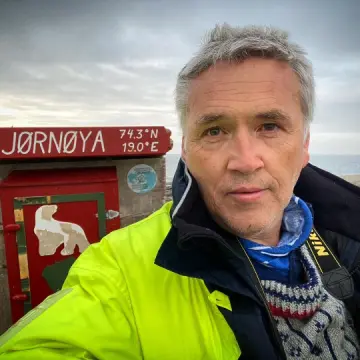
Call for Arctic Council to include Russian Indigenous groups in exile in working groups
May 12 marks the end of Norway's two-year chairship of the Arctic Council. A closed virtual meeting between all eight Arctic states will be arranged and the chair handed over to Denmark, including Greenland.
It is not immediately clear from the press-kit from the Arctic Council in which position, if at all, Russia will participate in the session.
In its fourth year of full-scale war against Ukraine, Moscow is still officially engaged in the the intergovernmental body, although not involving politicians.
Norway, who took over the chair from Russia in 2023, has over the last two years restarted contacts on non-political level in some of the working groups under the Council.
Additional to the eight member countries, six indigenous peoples' organisations have been granted permanent participants status in the Arctic Council. Among them is RAIPON, a Russian umbrella for 40 indigenous peoples' groups in the country.
The organisation lost its independence in 2013 when Kremlin-loyal actors took over the board. In 2022, RAIPON sent its support to Vladimir Putin's war.
Vice-President of the organisation is Anna Otke, a member of the Federation Council Committee on International Affairs, a warmonger supporting Putin's aggressions.
"RAIPON's participation in the Arctic Council helps legitimize the Kremlin's position and is used as a tool of Russian propaganda to cover up human rights violations in Russia," says Dmitri Berezhkov, member of the International Committee of Indigenous Peoples of Russia.
The committee works from exile in Europe and North-America.
Berezhkov says it is a paradox how Russia cover-ups its own human rights violations, but spotlights other Arctic nations violations.
"If you follow the websites of the Russian Ministry of Foreign Affairs or its embassies, such as the Russian Embassy in Norway, you’ll see they now regularly publish reports on human rights violations against Indigenous peoples in other countries. This is what they call soft power," Dmitri Berezhkov explains.
He elaborates:
"This is how the Kremlin’s machinery works: intimidating Indigenous human rights defenders, publishing selective 'human rights' reports, and quietly placing loyalists into leadership positions in international organizations."
Berezhkov is disappointed by Norway not inviting exile-Russian indigenous groups to sit around the tables of the different working groups in the Arctic Council.
"Exiled indigenous representatives from Russia are not invited to participate in the Arctic Council’s work. In 2022, after RAIPON publicly supported the invasion of Ukraine, we met with Arctic Council officials and raised concerns that RAIPON had lost its legitimacy in representing indigenous human rights interests," Berezhkov says.
Dmitri Berezhkov is also editor of the website Indigenous Russia, a news-portal that shortly after Russia's full-scale war against Ukraine was blocked for readers inside Russia by the Kremlin's censorship agency.
"We emphasized that war and Putin’s decision to start it are incompatible with indigenous rights, human rights, and sustainable development in the Arctic. By that time, Arctic Council member states and Permanent Participants had already begun suspending cooperation with Russia. Nevertheless, we received a clear answer: the war was not seen as grounds for changing the Arctic Council’s structure, and the suspension of activities would not entail structural reform."
Morten Høglund, Chair of the Senior Arctic Officials during Norway’s Arctic Council Chairship, argues that it is crucial to have dialogue.
"For cooperation with and among the Indigenous Permanent Participants, we established a new format for meetings. We held regular SAO Chair-Permanent Participant meetings several times a year. Some were hybrid meetings, but we also held meetings where representatives of all six Permanent Participants were together in person," Høglund says when summing up Norway's chairship in an interview posted on the portal of the Arctic Council's secretariat.
One such meeting took place in Kirkenes in 2023.
Asked by the Barents Observer about RAIPON's position in the Arctic Council, Norway's Foreign Minister Espen Barth Eide says it is important to have an area for conversations with indigenous peoples.
"It is a well known reality that it is very difficult to be an independent NGO in Russia today," Barth Eide says.
Eide says exile groups can be invited. His ministry adds that any exiled-Russian indigenous representatives can apply to join and register for meetings.
In its program for the 2025-2027 chairship, Denmark highlights focus on indigenous peoples' rights.
"Denmark will continue the Arctic Council’s long focus on the human dimension of the Arctic, with a particular focus on strengthening the participation of Indigenous Peoples and the inclusion of Indigenous Knowledge," the press-release from the launch of the program reads.
Copenhagen, however, does not mention Russia or the dilemma with war-supporting Kremlin controlled RAIPON.
















